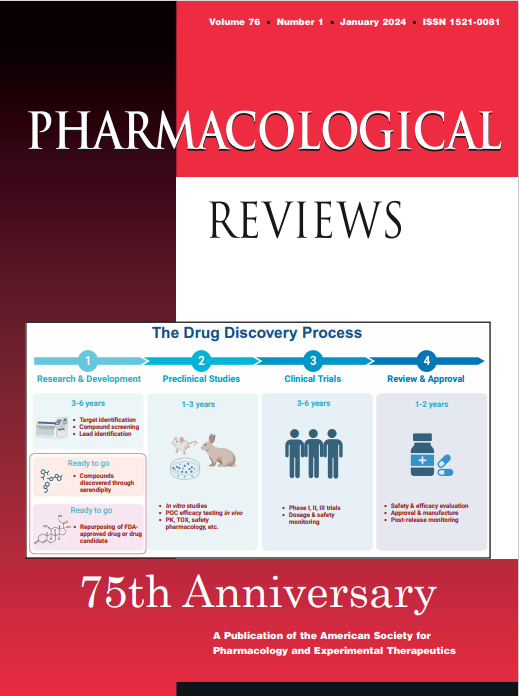CAR T 细胞和化疗组合疗法的治疗优势。
IF 17.3
1区 医学
Q1 PHARMACOLOGY & PHARMACY
引用次数: 0
摘要
嵌合抗原受体(CAR)T 细胞疗法改变了许多血液恶性肿瘤患者的预后。然而,有些患者对CAR T细胞治疗没有反应,将CAR T细胞用于实体瘤和脑瘤也遇到了许多挑战,包括肿瘤微环境恶劣和CAR T细胞持久性差。因此,单靠 CAR T 细胞疗法不太可能彻底清除癌症患者的肿瘤。CAR T 细胞和化疗药物的组合疗法是一种很有希望克服这一问题的方法,因为化疗药物可以增强 CAR T 细胞的抗肿瘤活性,或与 CAR T 细胞协同清除肿瘤。在此,我们回顾了为成功实现 CAR T 细胞与化学药物联合疗法所做的努力。我们将重点放在与已获批准的化疗药物的联合疗法上,因为这些疗法更容易应用于临床,但我们也回顾了未获批准的化疗药物和药物筛选,旨在揭示新的 CAR T 细胞和化学药物组合的前景。综上所述,本综述强调了 CAR T 细胞和化疗组合的前景,特别关注组合疗法如何克服单一疗法所面临的挑战,并支持这种治疗策略改善癌症患者预后的潜力。意义声明 通过与化疗药物的组合疗法改进目前可用的 CAR T 细胞产品,有可能在两种疗法都不足以实现肿瘤清除的情况下,大幅扩展癌症类型,并增加可从这些疗法中获益的患者人数。在此,我们对目前研究 CAR T 和化疗组合疗法的工作进行了全面回顾,并对未来确定新的有效组合的最佳方法提出了展望。本文章由计算机程序翻译,如有差异,请以英文原文为准。
Therapeutic advantage of combinatorial CAR T cell and chemo-therapies.
Chimeric antigen receptor (CAR) T cell therapies have transformed outcomes for many patients with hematological malignancies. However, some patients do not respond to CAR T cell treatment, and adapting CAR T cells for solid and brain tumors has been met with many challenges including a hostile tumor microenvironment and poor CAR T cell persistence. Thus, it is unlikely that CAR T cell therapy alone will be sufficient for consistent, complete tumor clearance across cancer patients. Combinatorial therapies of CAR T cells and chemotherapeutics are a promising approach for overcoming this as chemotherapeutics could augment CAR T cells for improved anti-tumor activity or work in tandem with CAR T cells to clear tumors. Herein, we review efforts towards achieving successful CAR T cell and chemical drug combination therapies. We focus on combination therapies with approved chemotherapeutics as these will be more easily translated to the clinic, but also review non-approved chemotherapeutics and drug screens designed to reveal promising new CAR T cell and chemical drug combinations. Together, this review highlights the promise of CAR T cell and chemotherapy combinations with specific focus on how combinatorial therapy overcomes challenges faced by either monotherapy and supports the potential of this therapeutic strategy to improve outcomes for cancer patients. Significance Statement Improving currently available CAR T cell products via combinatorial therapy with chemotherapeutics has the potential to drastically expand the types of cancers and number of patients that could benefit from these therapies when neither alone has been sufficient to achieve tumor clearance. Herein, we provide a thorough review of the current efforts towards studying CAR T and chemotherapy combinatorial therapies and provide perspectives on optimal ways to identify new and effective combinations moving forward.
求助全文
通过发布文献求助,成功后即可免费获取论文全文。
去求助
来源期刊

Pharmacological Reviews
医学-药学
CiteScore
34.70
自引率
0.50%
发文量
40
期刊介绍:
Pharmacological Reviews is a highly popular and well-received journal that has a long and rich history of success. It was first published in 1949 and is currently published bimonthly online by the American Society for Pharmacology and Experimental Therapeutics. The journal is indexed or abstracted by various databases, including Biological Abstracts, BIOSIS Previews Database, Biosciences Information Service, Current Contents/Life Sciences, EMBASE/Excerpta Medica, Index Medicus, Index to Scientific Reviews, Medical Documentation Service, Reference Update, Research Alerts, Science Citation Index, and SciSearch. Pharmacological Reviews offers comprehensive reviews of new pharmacological fields and is able to stay up-to-date with published content. Overall, it is highly regarded by scholars.
 求助内容:
求助内容: 应助结果提醒方式:
应助结果提醒方式:


